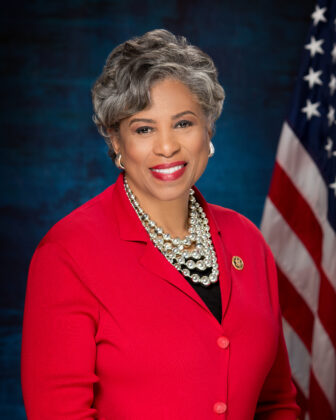By JAKKAR AIMERY
Capital News Service
LANSING — As Women’s History Month ends, public officials and the president of a national professional organization say women continue to face challenges while writing what some call “herstory.”
Those challenges include the lack of pay equity with their male counterparts, inequity in the criminal justice system and violence aimed at women, all problems they say continue despite past victories.
“Women and ‘herstory’ have traditionally not been told. The contributions of women have so often been dismissed or underreported,” said U.S. Rep. Brenda Lawrence, D-Southfield. “It allows us to inspire the next generation of women by ‘herstory’ and what women have done and can do in America.
Lawrence, a Democrat from Southfield who was the first Black woman to serve as mayor of the city, said this year’s Women’s History Month was a time to reflect on the 2020 election and the important role that women played in educating and motivating first-time voters to show up at the polls.

“I know for a fact that it will no longer be said that politics is a man’s job because the number of women who were elected (to Congress) on both sides of the aisle has been tremendous,” Lawrence said. “America actually elected a woman to be the vice president of the United States. That’s an amazing accomplishment and something worth celebrating.”
Lawrence, who has worked on legislation for equal pay, equal rights and combating violence against women, said she will continue to create a legacy for women in public policy.
Detroit School Board member Sherry Gay-Dagnogo, a former state representative, said during her time in the Legislature, she worked to pass legislation known as the “Clean Slate” package to allow Michigan residents the opportunity to have their criminal records expunged.
Gay-Dagnogo said that women have been disproportionately affected by the criminal justice system and fewer than 10% of those convicted of felonies or misdemeanors apply for expungement.
“As the only Black woman from Detroit who has a bill in this package, being part of it was important. But more than that, I want women who have been impacted adversely to apply for those expungements,” Gay-Dagnogo said.
She said women are working to advance and improve their communities, and, as time moves forward, are learning to recognize themselves.
“It’s amazing that I serve on a (school) board that is comprised of all women,” Gay-Dagnogo said. “That’s not to take anything from men, but that sends a message of the work that women are doing to advance our schools and education.”
Some initiatives and programs in Detroit, like Motor City Match, have been created to assist residents in becoming entrepreneurs. Other new opportunities like the Elections Academy and Clerk’s Classes, which are led by City Clerk Janice Winfrey, help identify young leaders on her staff — especially women — and shape their job performance and professional development.
“I want our young women to know that they have to feel comfortable with who they are,” Winfrey said. “When we come to the table, it looks different, and we have to feel comfortable with that difference because leadership is all about confidence and decision-making, and our young women have to be comfortable with both.”
Through similar programming, Winfrey said she’ll continue to use her position as city clerk to empower women by hiring and mentoring them to ensure they have the skills and opportunities necessary to succeed.
That will include classes related to elections and communication in the workplace, she said.
In both the private and public sectors, Women’s History Month has been a time to acknowledge barriers that women continue to face.
“As a Black woman, I face the battles of sexism and racism,” said National Black Public Relations Society-Detroit president Adrienne Woodland. “While we are making great strides, we are also seeing society’s racist and patriarchal attitudes coming to the forefront.”
Woodland said that as a public relations practitioner, she operates in a profession that was once primarily male-dominated. Over the past decade, those numbers have changed, and gender has the potential to play a role in storytelling, which shapes her work.
She said the obstacles and success stories that Women’s History Month narrates help create the representation women need.
“If I can see it, I can do it,” Woodland said. “That’s the power of representation, and we’ve been able to create this image through our programming such as ‘Women in Media and PR,’ highlighting local practitioners and even among our board members.”
Woodland said that her organization will continue to produce programming that features and encourages women to enter public relations.
Lawrence said representation matters because it creates opportunities to serve as role models.
She recalled speaking with a child who questioned her position as mayor and said, “You’re the mayor? But you’re a girl!”
“When you see women breaking glass ceilings and showing that by being committed, diligent and focused on obtaining our goals, we are changing that stereotype and prejudice that women can’t do certain jobs,” Lawrence said.
“Women have been denied so many positions, but now we have the opportunities to do so much,” she said.